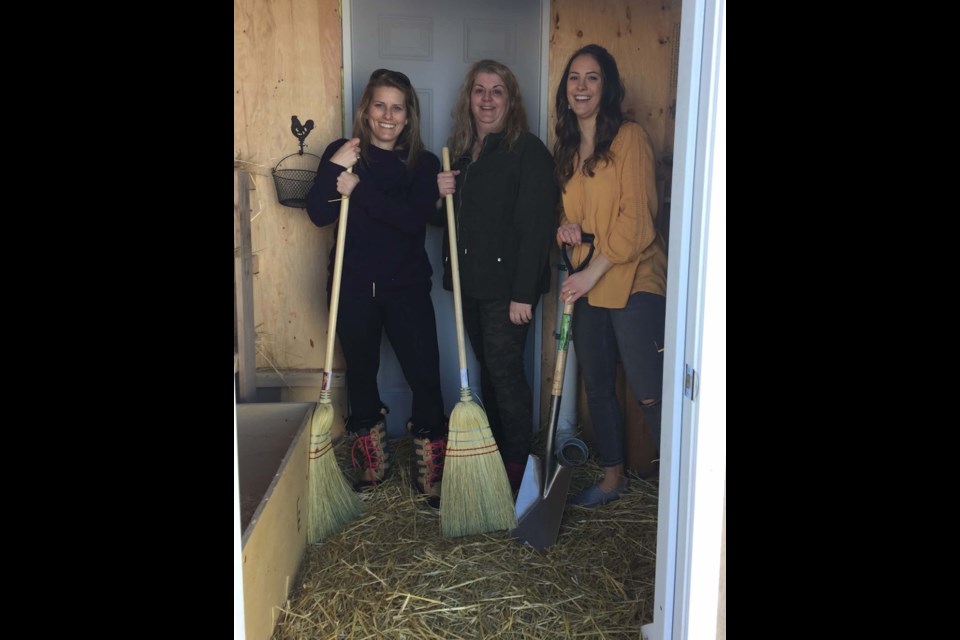When it comes to how serious backyard chicken owners should be taking the bird flu, local expert Monique Webb, who runs the chicken permit certification course, said she thinks biosecurity should be taken seriously all the time.
“I think it's really, really important to have healthy backyards and have healthy animals. And we stay healthy by having good biosecurity,” she said
On April 12, Minister of Agriculture, Forestry, and Rural Development Nate Horner issued a reminder to poultry farmers of the importance of biosecurity measures and early detection in the prevention of spreading highly pathogenic avian influenza (HPAI).
“Recently, Alberta poultry farms have tested positive for highly pathogenic avian influenza (HPAI), which was previously detected in migratory waterfowl, backyard flocks, and commercial poultry flocks in the eastern United States, Manitoba, Ontario, Quebec, and in a wild bird in Vancouver,” said Horner in a press statement.
According to the Canadian Food and Inspection Agency (CFIA) website, avian influenza (IA) is a contagious viral infection that can infect several different species of birds. There are two categories of “bird flu” that are based on the severity of illness caused in birds. There is low pathogenicity (LPAI) and high pathogenicity (HPAI).
The CFIA has confirmed eight cases of HPAI in the province since the disease was first detected in Alberta on April 3.
The locations include Mountain View County, Camrose County, Wetaskiwin County, Paintearth County, Kneehill County, and Ponoka County, with all cases being detected in poultry flocks.
The infected premises are all under quarantine and an investigation by the CFIA has begun. The CFIA will be establishing movement control measures on other farms in the areas where infected birds have been found.
Webb said prevention is better than reaction and COVID has taught us preventing disease spread is easier and less expensive and less traumatic than dealing with a disease outbreak.
“These diseases exist all the time. It's just what severity are we dealing with?” she said.
The CFIA said avian influenza is spreading in wild bird populations across the globe and presents a significant national concern, as birds migrate to Canada.
Webb said the issues for backyard and other local poultry farmers is the area is in the natural pattern for geese migration.
“That's where we're seeing geese, and what the geese do [is] they poop everywhere,” she said.
Webb said she teaches biosecurity in her courses, and she teaches people that if their property backs into a stormwater pond, there is a chance there will be more wild birds in the area.
“So, if you have backyard chickens and you're next to a water source like that, then you need to have extra biosecurity,” she said.
Webb recommends being conscious of footwear and changing your shoes when you go into your yard where your chickens are.
People not near water sources still need to be cautious, as wild birds can fly over.
“Then poop could contaminate your coop, so an extra measure people could take at this time would be to cover the coop area, like with a tarp,” she said.
Webb said it is important to be conscious when out in your yard for things like goose poop. And if there is concern, Webb said she has been telling people to not let the chickens graze in the yard but keep them contained in their run space, “so that they're just not potentially walking through the grass in your backyard that could be contaminated with wild bird feces,” she said.
Other than that, the biosecurity measures Webb recommends are similar to the measures we have seen with COVID, which include social distancing, not bringing chickens to visit other chickens, quarantining new chickens for 14 days, and washing hands before and after handling chickens.
“[Wash] your hands before and after going to visit other people’s flocks of chickens. [Wear] different shoes and clothing if you do interact with separate flocks of chickens,” she said.
There have been rare occasions that HPAI viruses, such as H5N1, can cause disease in humans, said the CFIA website, and “transmission to humans has occurred through close contact with infected birds or heavily contaminated environments.”
Horner, in a press release, assured Albertans there is no risk to food safety and the risk to human health is extremely low.
Webb said the reaction to the news that avian influenza has reached the province in the people she has spoken with has been mixed.
Some of the acreage owners she has spoken with have told her they were thinking about extending their flock but have decided to put those plans on hold. Other people have told her they feel confident in their biosecurity practices.
“There's no full-blown panic at the moment. But it’s definitely on everybody's radar,” said Webb.
If a case of HPAI is suspected in a flock a person is required to report it to the CFIA or the Office of the Chief Provincial Veterinarian.



